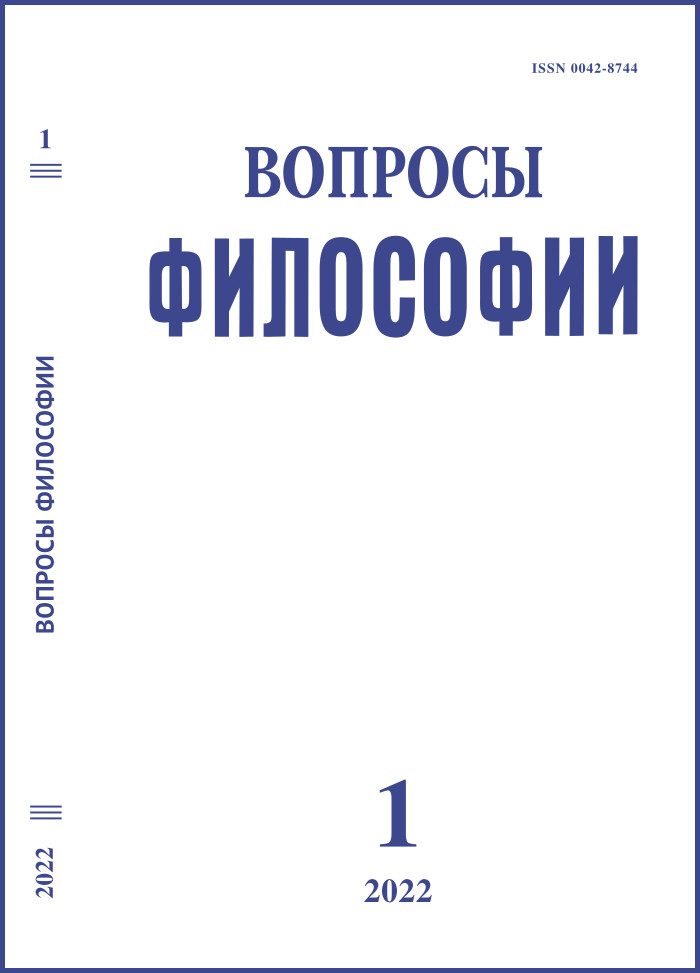A.A. Guseinov’s Negative Ethics at the Intersection of Justification Strategies of Morality
DOI:
https://doi.org/10.21146/0042-8744-2022-1-43-53Keywords:
morals, ethics, justification of morality, the supreme good, moral prohibition, subjunctive mood of morality, golden rule, categorical imperative, negative act, ethics of non-violence, Abdusalam A. GuseinovAbstract
The article analyzes the negative ethics of Abdusalam A. Guseinov as an original way to justify absolute morality. The supposition of the philosopher’s ethical reasoning is an appeal to the Aristotelian understanding of the Supreme Good as the ultimate goal, the achievement of which does not depend on external conditions and fully coincides with the individually responsible decision of a reasonable subject. The choice of such goal determines the self-sufficiency of moral motivation which creates an indisputable priority of moral obligation over all other human obligations and motives. As a result, the justification of morality is developed by A.A. Guseinov as the logic of convincing an individual capable to rank her life goals in the absolute priority of striving for the Supreme Good. According to A.A. Guseinov the adequate embodiments of this goal setting are a) the moral prohibition interpreted as a norm having direct effect and b) the negative act that consistently implements this prohibition. The decision to commit such an act is made in the course of “thought-experiment” and is fixed in the subjunctive mood, which A.A. Guseinov (by the example of the Golden rule and Kant’s
categorical imperative) assigns the key role in the sphere of morality. At the same time identity of moral responsibility with individual one, established in M.M. Bakhtin’s philosophy of action, cements the synthesis of Aristotelian and Kantian strategies for justifying morality in the negative ethics. A.A. Guseinov considers the ethics of non-violence a final normative concretization of absolute morality. The ethics of non-violence ensures the genuine independence of the moral subject both from the external circumstances and actions of other people, and from her own inclinations and affects.
Published
Versions
- 2025-02-06 (2)
- 2022-01-31 (1)

